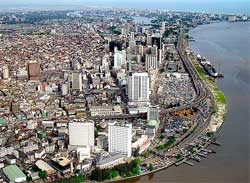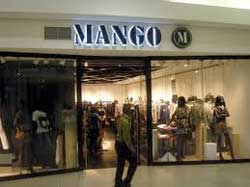
"The modernisation of Africa will largely belong to African companies‚" Planer said at the World Retail Congress Africa‚ held in Sandton.
Consumer spending in Africa is projected by McKinsey Global Institute to reach $1.4trn in 2020. For retailers and consumer goods companies looking to secure long-term growth and diversify their source of income‚ setting up an African strategy is key.
But there is a caveat: Africa is not an easy place to do business particularly as there are significant risks including the lack of infrastructure‚ high taxes‚ corruption and red tape.
Absa Investments analyst Chris Gilmour says Africa is working at becoming a viable and profitable investment destination but better infrastructure is required.
"Electricity is a major challenge. Nigeria‚ for example‚ has got one-tenth of the electricity generated in South Africa - we have 40GW‚ Nigeria has 4GW‚ and they have three times the population that we've got‚" he said.
According to Standard Bank‚ Africa will need to invest at least US$100bn in the next decade to upgrade or install infrastructure‚ if it is to realise its economic growth potential.
Gilmour said that while South Africa is seen as the gateway to the rest of the continent‚ its natural competitive advantage is being eroded rapidly because the country is "not necessarily" taking the initiative and investing as much as other counties are.
"There is a lot of Chinese money coming into the continent along with Indian and Brazilian money‚ too. Investors realise the potential of the continent but South Africa is falling behind because we do not have a properly integrated approach to investing in the rest of Africa‚" he said.
An EY study shows the BRICS nations' share in African trade has risen from just 1% a generation ago to 20% today‚ and by 2030‚ this share is expected to be about 50%.

"Africa's raw material resources are important to China and it will play the role of lender and trade partner to secure these minerals.. Similarly‚ Indian investment in Africa has grown significantly‚ particularly in telecommunications‚ agriculture‚ infrastructure and mining. Brazil has also intensified its efforts to invest in Africa and compete with China and India‚" EY said in its Africa On The Move report.
Meanwhile‚ Clicks' chief executive David Kneale says more jobs would be created in South Africa if the country's labour laws were less restrictive than they currently are. The retailer operates in South Africa‚ Namibia and Botswana.
"The risk in the near term for South Africa is that as the ANC seeks re-election in 2014 it will actually make labour legislation more‚ rather than less‚ restrictive in order to appease its trade union allies‚" he suggested.
With economic growth lower than that of other emerging countries‚ South Africa's labour unrest and a lack of job creation are adding to a slowdown in consumption-led growth. And‚ with unemployment hovering at about 25% in the country‚ the government is falling behind its target of 5m new jobs promised in the 2009 elections.
Lack of policy coherence‚ poor infrastructure engagement and stifling trade laws have hindered growth and hurt investment.
Woolworths' group retail operations and international director Paula Disberry says the retail sector has a tremendous opportunity to create jobs.
"Globally‚ one in four people is employed indirectly by retail‚ manufacturing or its supporting industries. This could be an incredible growth driver for South Africa and for the rest of the Africa‚ but we need flexibility in order to do so. That is the debate that should be had between government and industry.
"There have been some healthy and courageous statements coming from the business community more recently but there has also been a bit of a silence for some time‚ and that needs to change‚" she says.
"We need to communicate more and help government understand the impact and implications of potential legislation that we believe is onerous and a risk to our continued performance‚" Disberry says.
The upmarket retailer‚ which has a presence in 12 African countries including in South Africa‚ provides more than 23‚000 direct jobs in the country and about double that figure through its supply chain.

For more than two decades, I-Net Bridge has been one of South Africa’s preferred electronic providers of innovative solutions, data of the highest calibre, reliable platforms and excellent supporting systems. Our products include workstations, web applications and data feeds packaged with in-depth news and powerful analytical tools empowering clients to make meaningful decisions.
We pride ourselves on our wide variety of in-house skills, encompassing multiple platforms and applications. These skills enable us to not only function as a first class facility, but also design, implement and support all our client needs at a level that confirms I-Net Bridge a leader in its field.
Go to: http://www.inet.co.za